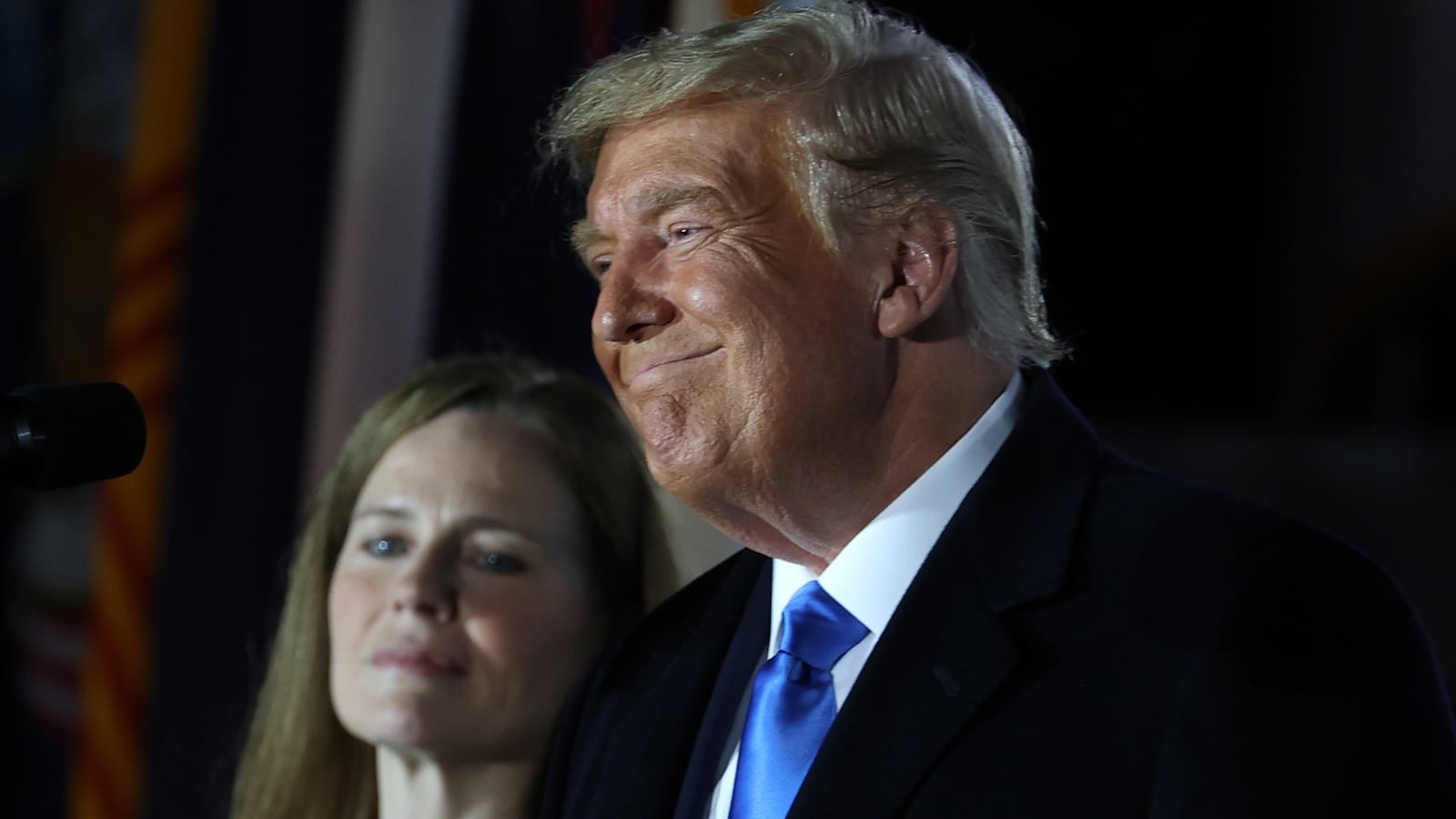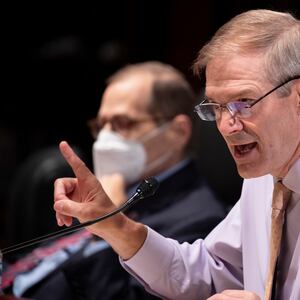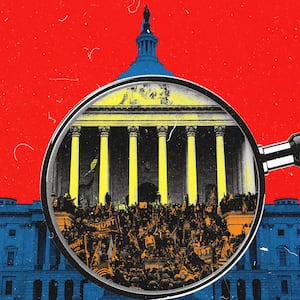It was bound to be a bitter fight to the very end.
Former President Donald Trump has taken his battle to keep his White House records secret from the House Jan. 6 Committee all the way to the U.S. Supreme Court, filing a petition on Thursday asking justices to step in and block investigators.
The appeal could be Trump’s last-ditch effort to use the nation’s courts to slow down the work of the congressional committee, which is uncovering what role—if any—the Trump administration played in fomenting a violent mob attack on the U.S. Capitol to keep him in power.
Trump has already lost both initial rounds of this fight, with a federal judge noting that Trump doesn’t have the power of a king, and an appellate panel unanimously lambasting his pleas for having “no basis.”
In his 195-page petition, Trump’s legal team rehashed the same losing arguments: That he, as a former president, retains some semblance of “residual” executive privilege. That a former president can somehow override the current president’s decisions to turn over White House records. And that allowing investigators to comb through his administration’s communications—on a day when Trump was openly trying to prevent the peaceful transfer of power—threatens the future of the Republic.
“At stake is the ability of Presidents—past, current, and future—to rely upon executive privilege, separation of powers, and the Presidential Records Act to protect confidential Presidential records of deliberations from premature production to political rivals,” it says.
The battle began when the bipartisan Jan. 6 committee asked the National Archives to turn over White House records from the previous administration. Although the request can be understood as the legislative branch of government reaching into the executive branch, it was approved by President Joe Biden when he waived “executive privilege.”
In October, Trump sued the committee’s chairman, Rep. Bennie G. Thompson, to block the transfer of records. He called it “a vexatious, illegal fishing expedition… to harass” him and his allies. And he offered an unusual argument: a sitting president can’t just make public documents that could harm their predecessor. In this fight, the former president chose to be represented by Jesse R. Binnall, the same “stop the steal” lawyer who helped him sue to overturn Nevada’s 2020 election results.
In November, U.S. District Judge Tanya S. Chutkan rejected that claim, noting Trump’s failed notion “that his executive power ‘exists in perpetuity.’” “Presidents are not kings, and Plaintiff is not President,” Chutkan wrote.
Trump appealed to the District of Columbia’s appellate court, which swiftly knocked him down earlier this month. A three-judge panel issued a sweeping opinion that carefully avoided doing what Trump wants: create a legal “test” of a former president’s power that could effectively delay investigators’ work by giving ammunition to resistant witnesses to challenge their subpoenas in court.
In Trump’s request for the Supreme Court to intervene, he gave it another shot.
“President Trump is entitled to an injunction, and this Republic is entitled to an objective test,” the petition says.
The former president made his petition to Chief Justice John Roberts, and it could take a few days or weeks before the nation’s high court decides whether it wants to review the case—or give him a lifeline by temporarily preventing the National Archives from turning over the records soon.








